Broken ankle Radiology
Radiographic features An approach to reading an ankle radiograph can be read here. Treatment and prognosis Results following the anatomic reduction of a displaced ankle fracture are good. Post-traumatic arthritis has been reported in ~15% of patients despite an anatomic reduction, likely due to chondral injury 7 . Quiz questions References
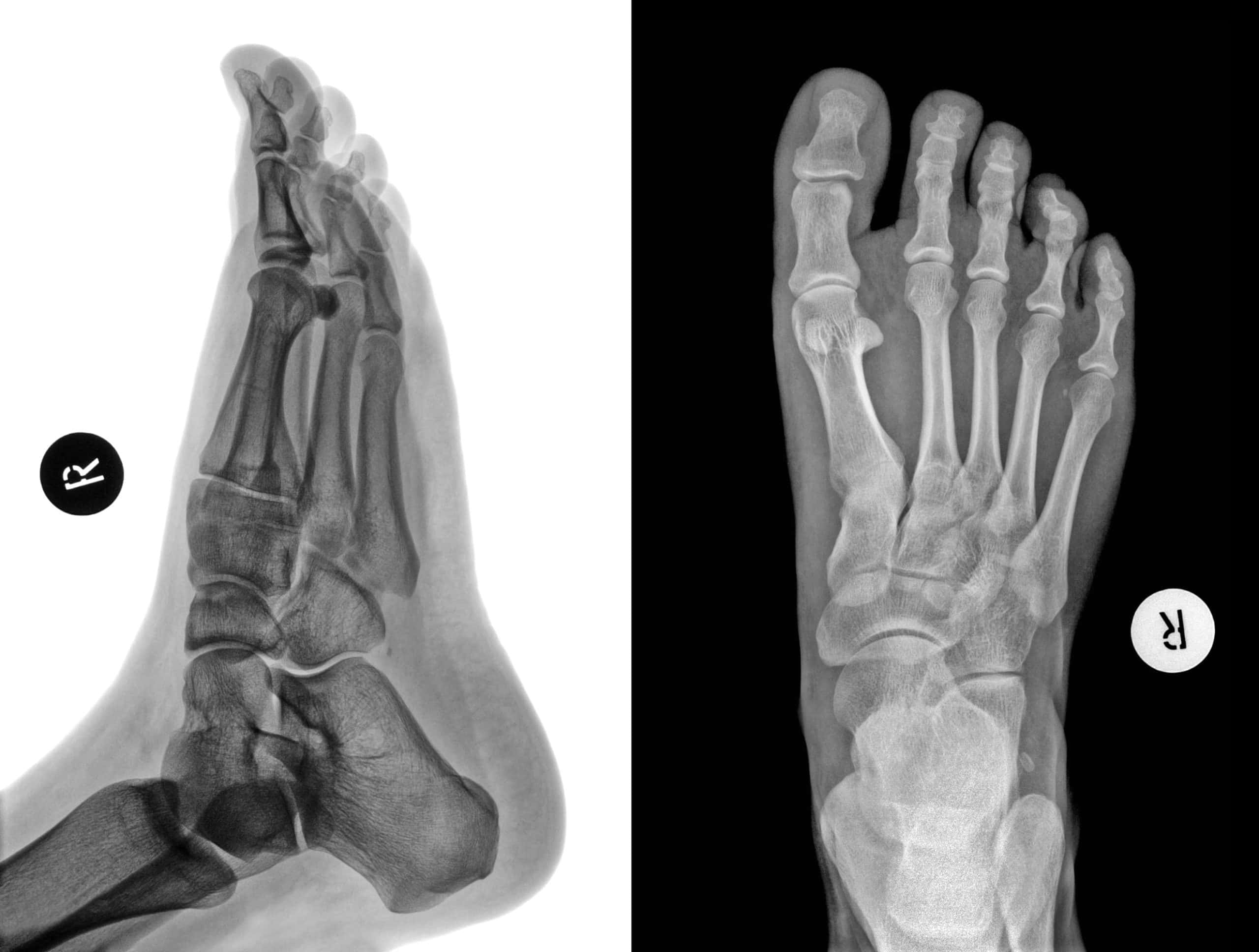
The Most Common Types of Ankle Fractures Simon Moyes
25 Techniques 2 Images Summary Ankle fractures are very common injuries to the ankle which generally occur due to a twisting mechanism. Diagnosis is made with plain radiographs of the ankle. Treatment can be nonoperative or operative depending on fracture displacement, ankle stability, presence of syndesmotic injury, and patient activity demands.

What Should I Expect From Ankle Fracture Surgery and Recovery? Eugene Stautberg, MD General
1 Broken Ankle This photo contains content that some people may find graphic or disturbing. See Photo The swelling, discoloration, and bruising are typical of a broken ankle. knitgirl63/Flickr Ankle fractures are fairly common and can cause symptoms similar to those of an ankle sprain.
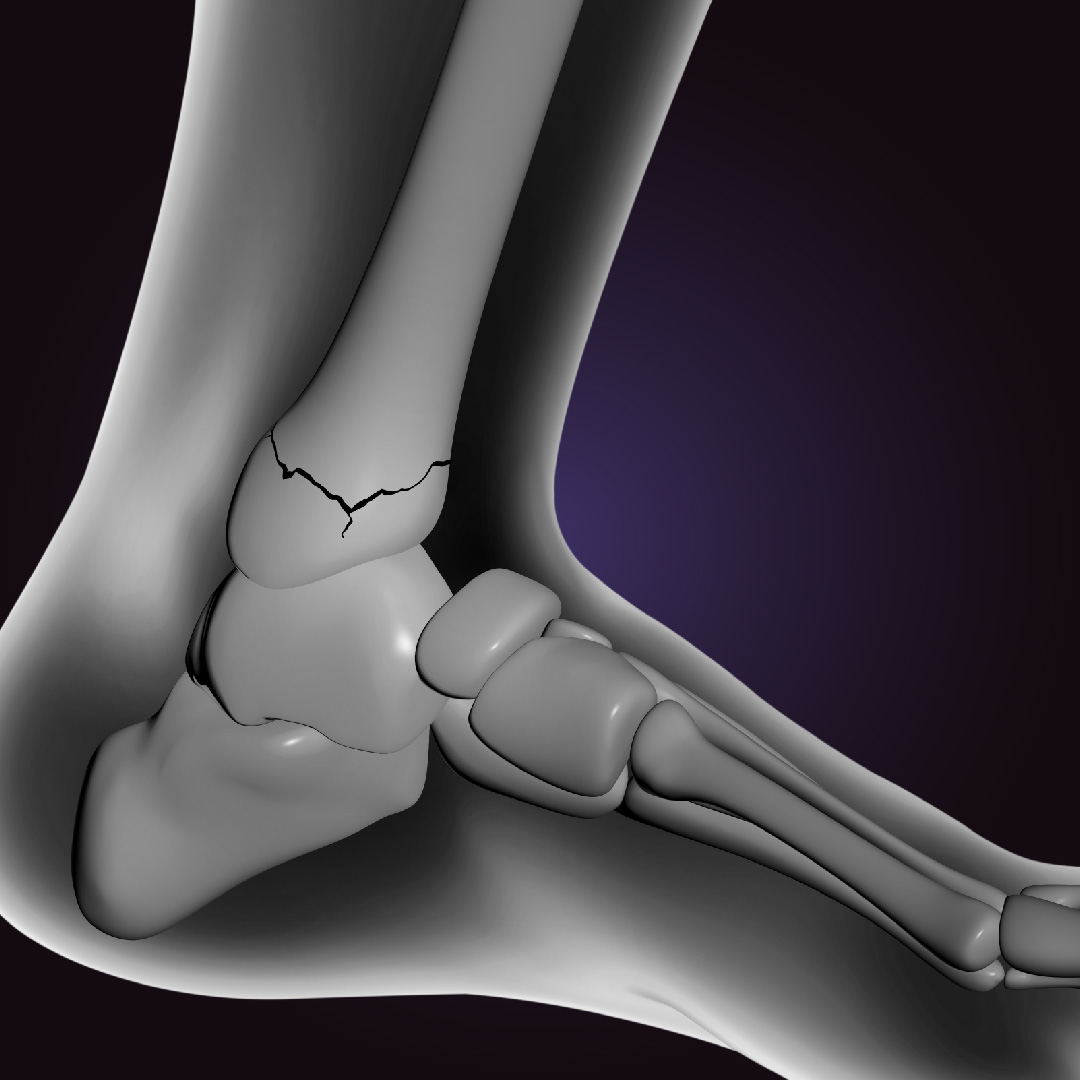
Causes of Ankle Fracture to SYS Medtech International Pvt. Ltd.
Browse 1,312 authentic ankle fracture stock photos, high-res images, and pictures, or explore additional ankle fracture xray or ankle fracture x-ray stock images to find the right photo at the right size and resolution for your project.

OrthoDx Ankle Fracture in Patient With Diabetes Clinical Advisor
A broken ankle is a fracture or multiple fractures of one or more of three bones in the ankle joint: the tibia (shinbone), the fibula (outer bone of the lower leg), and the talus. Broken Ankle? Get quick access to an HSS orthopedic surgeon. Call our Ankle Fracture Line at 833.294.9759 Anatomy of the ankle joint

Ankle Fractures Broken Ankle Florida Orthopaedic Institute
Introduction Ankle fractures are common injuries that could result from a trivial twisting injury in old frail patients up to high energy trauma in a young population. Treatment of these fractures aims to restore joint stability and alignment to reduce the risk of post-traumatic ankle arthritis. [1] [2] Anatomy of the Ankle Joint
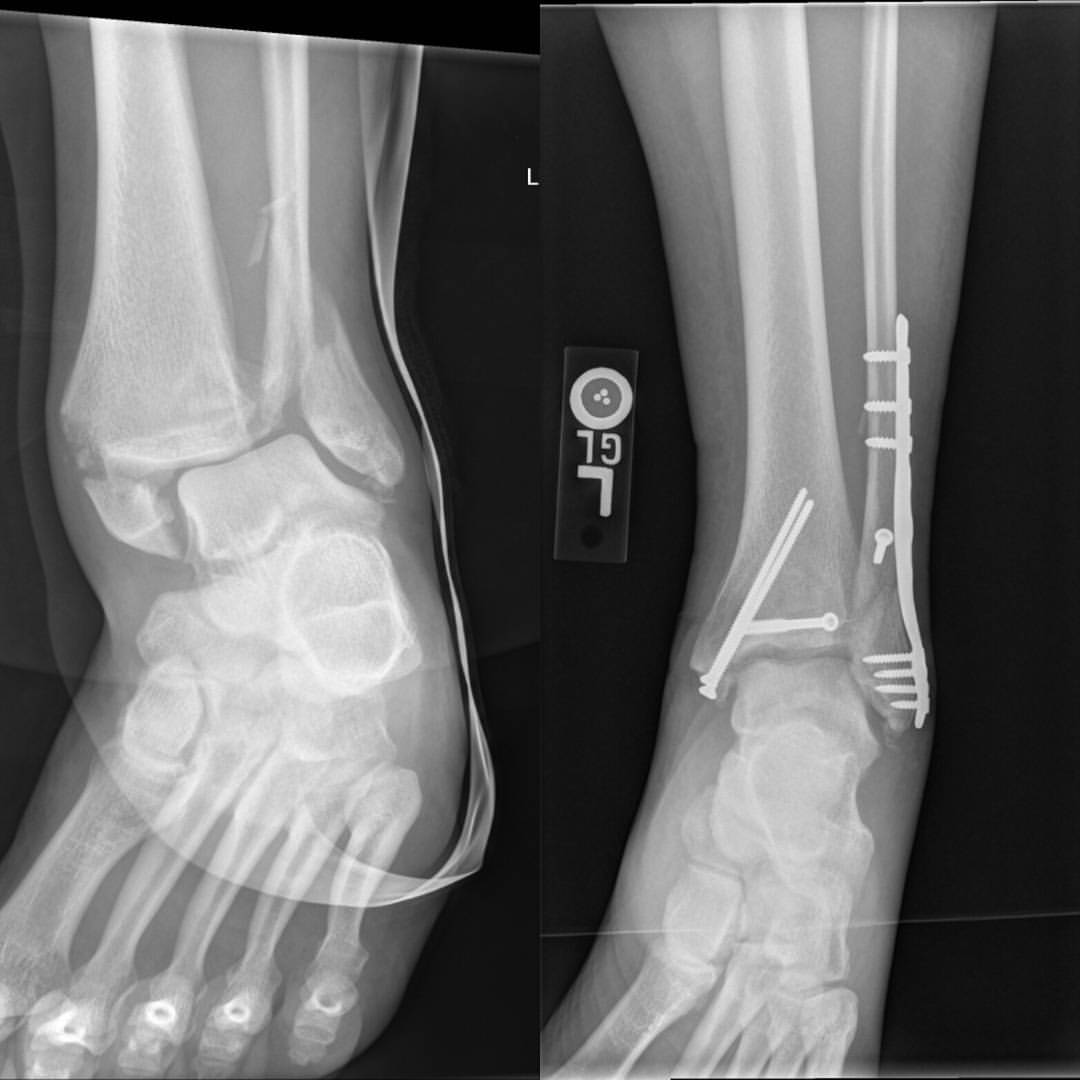
ANKLE FRACTURE BEFORE AND AFTER
Overview What is a broken ankle? A broken ankle, or ankle fracture, is one of the most common causes of ankle pain. An ankle fracture happens when you break one or more bones in your ankle joint. Your ankle joint consists of your tibia, your fibula and your talus. Your tibia is the big bone in your lower leg and is sometimes called your shinbone.
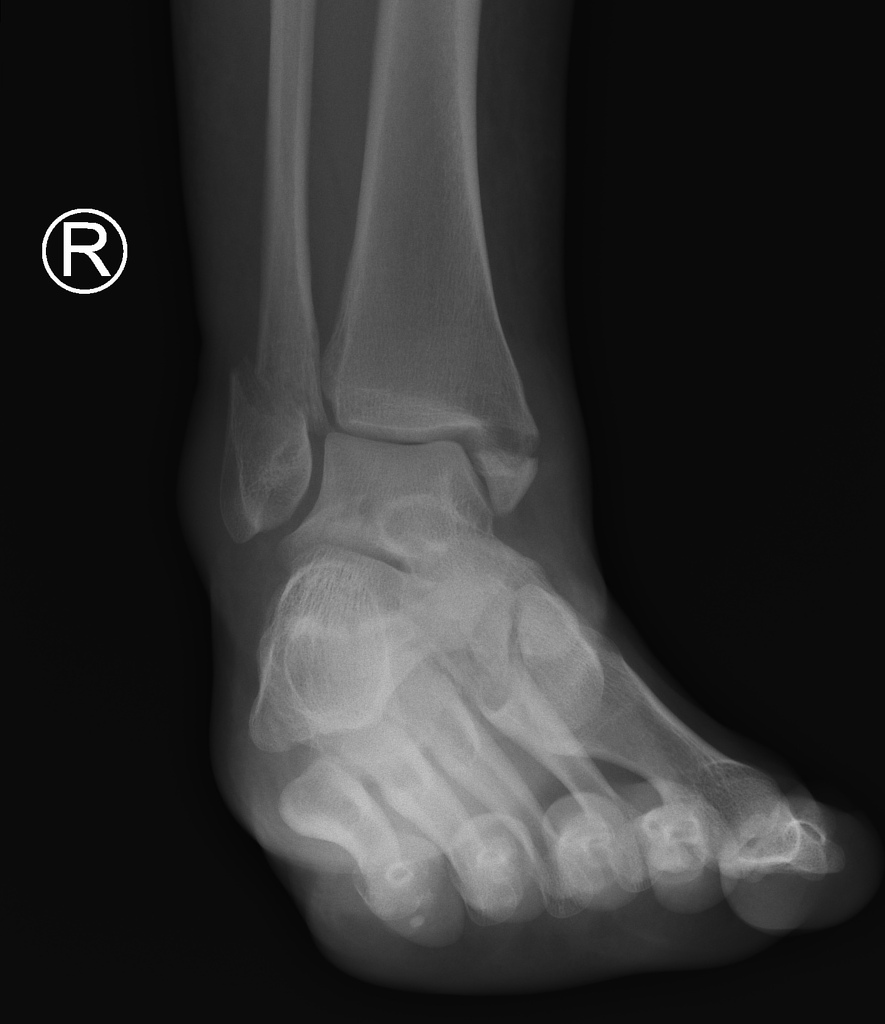
Ankle Fractures Core EM
Pain, deformities, and the grinding or movement of broken bones of the knee, shin, ankle, and foot. Pain, excess looseness of a joint, or complete tear in ligaments. Fluid in the joint and joint.
.jpg)
Ankle fracture wikidoc
Description Ankle fractures can be classified by how much the pieces of bone have moved out of their normal position. Nondisplaced fracture. A nondisplaced ankle fracture is where the bones are not out of place. These fractures do not require surgery. Displaced fracture. A displaced ankle fracture is where the broken bone fragments are separated.
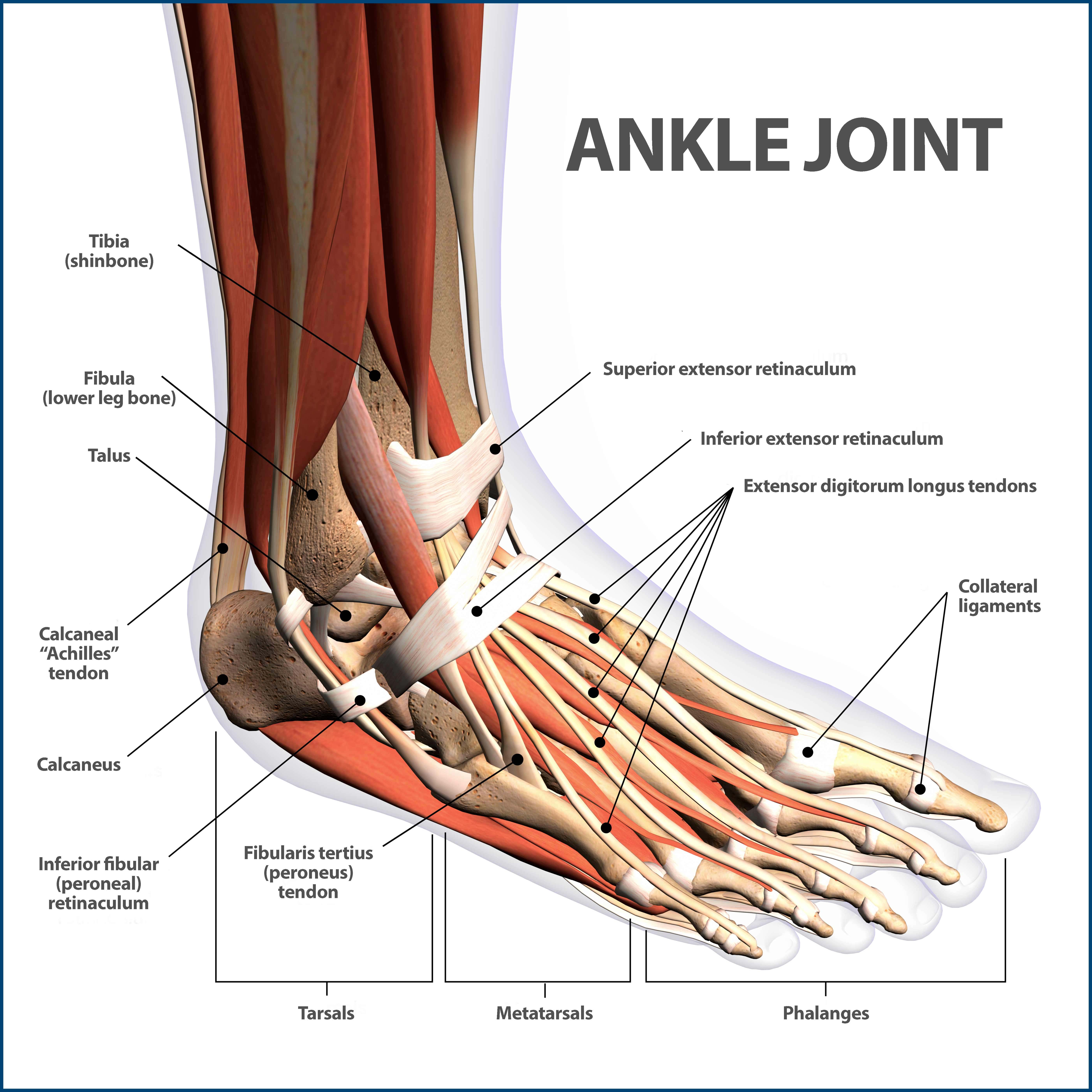
Ankle Fractures Broken Ankle Florida Orthopaedic Institute
Treatment Broken ankles may involve one or more of the three bones of the ankle joint—the tibia, fibula, and talus. There are different types of ankle fractures—lateral malleolus and bimalleolar fractures, for example—all of which are defined by exactly which parts of the ankle are affected.

3 Most Common Fractures and How to Treat Them John A. Scheffel, DPM Podiatry
Tibia Only Fracture (pilon fracture) The tibia (shin bone) can break in one place or shatter in a number of places at the ankle joint. Like bimalleolar and trimalleolar fractures, these fractures are caused by a high energy impact, for example a car accident, a fall from height or a skiing accident. Bimalleolar, trimalleolar and tibia-only.

UHN Blog Emergency! Coping with a Broken Ankle Overseas University Health News
Recovery tips Summary A broken ankle is also called a fractured ankle. It happens when one or more bones in the ankle joint break. If you've been injured, have pain, and can't walk or move.

Can You Still Walk If You Have An Ankle Fracture? Steve A. Mora, MD
Diagnosis Treatment A lateral malleolus fracture is a break in the bone on the outside of your ankle joint. The lateral malleolus is part of the fibula, the smaller of two bones of the lower leg that carries around 10% of your body weight.
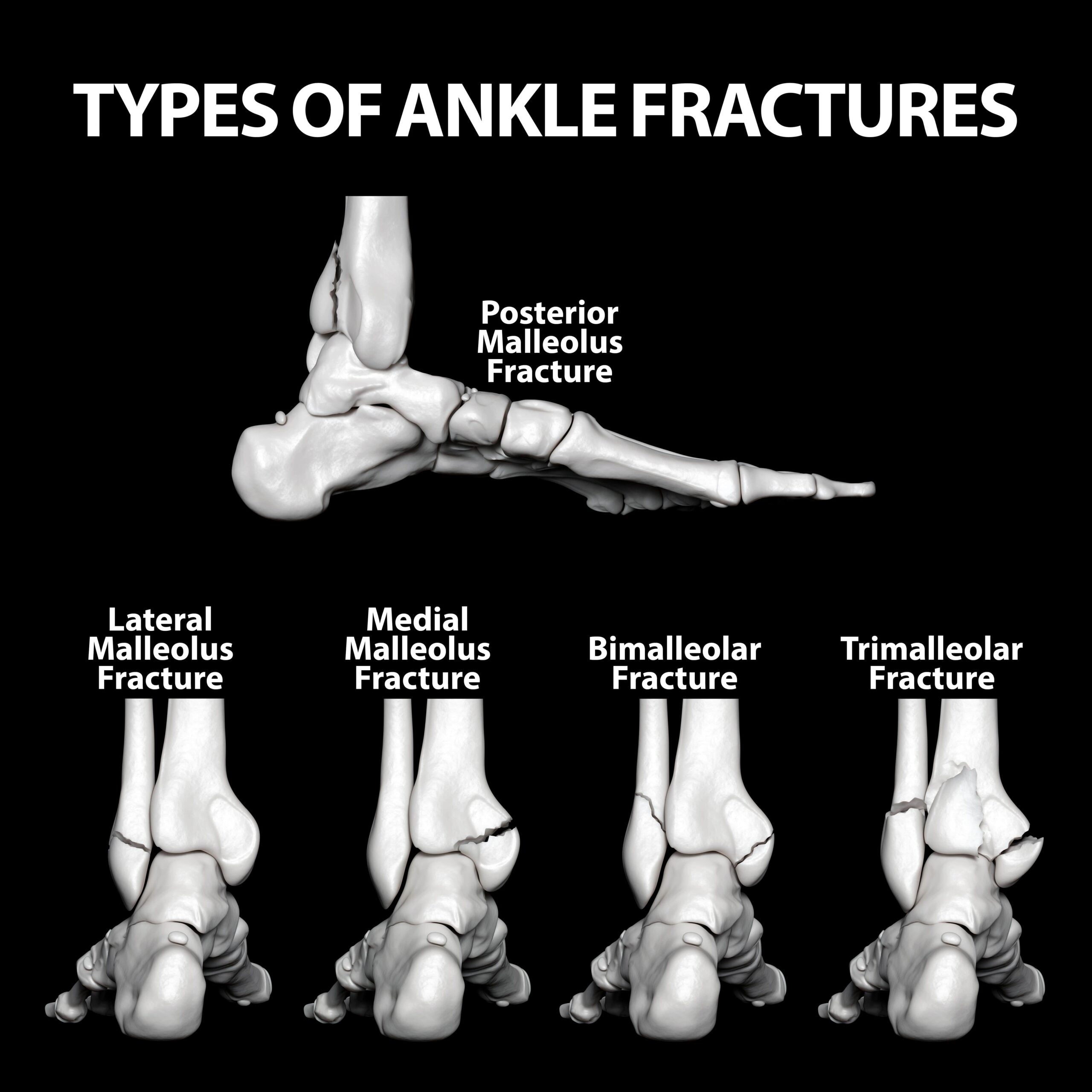
Ankle Fracture Surgery Florida Orthopaedic Institute
[ 8] Diagram showing the typical locations for ankle fractures occurring from the 4 major injury mechanisms. Note that the supination external rotation (SE) fracture is shown as a dashed.

Ankle fracture Types, signs and symptoms and treatment YouTube
Ankle fractures - Symptoms, Causes, Images, and Treatment Options Ankle fractures Highlights & Basics Highlights & Basics Key Highlights Ankle fractures are commonly a low-energy fracture of either the lateral or medial malleolus, or both, and can include a fracture of the posterior malleolus.
:max_bytes(150000):strip_icc()/talus-fractures-2549436_final-3b5774c8102f4aa58615e0df5e2af0f7.png)
Talus Fracture of the Ankle Symptoms, Treatment, and More
Most ankle fractures can be visualized on X-rays. The technician may need to take X-rays from several different angles so that the bone images won't overlap too much. Stress fractures often don't show up on X-rays until the break actually starts healing. Bone scan. A bone scan can help your doctor diagnose fractures that don't show up on X-rays.